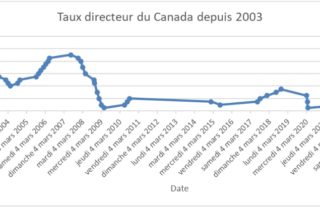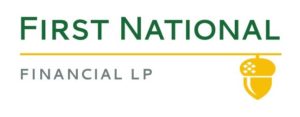June 2, 2025 |
Blog


Our blog
Popular Tags:


November 5, 2024 |
Blog
Buying a Residential Property in Canada with No Down Payment: Solutions

October 31, 2024 |
Blog
How to avoid the welcome tax?

September 17, 2024 |
Blog
The policy interest rate in Canada over the past 20 years
August 28, 2024 |
Blog
A five-star service completely free!

June 15, 2023 |
Blog
6 mistakes to avoid when renewing your mortgage

April 20, 2023 |
Blog
What you need to know about fixed and variable mortgage rates

November 30, 2022 |
Blog
How to choose the best mortgage broker?

November 30, 2022 |
Blog
When to renegotiate your mortgage?

November 28, 2022 |
Blog
How To Finance Your Renovations With Your Mortgage?

November 23, 2022 |
Blog
What To Do When Interest Rates Rise?

November 23, 2022 |
Blog
What If Your Mortgage Is Denied?

November 22, 2022 |
Blog
How to consolidate your debts using your mortgage?

November 22, 2022 |
Blog
How to improve your credit?

November 17, 2022 |
Blog
Fixed or variable mortgage rate: How to choose

August 9, 2022 |
Blog
What is the household debt ratio?

August 8, 2022 |
Blog
How to choose the best mortgage broker?

August 4, 2022 |
Blog
What is CMHC mortgage insurance?

July 30, 2022 |
Blog
15 tips to save on your mortgage

December 9, 2020 |
Blog
Which are expenses to be planned when buying a house
September 23, 2020 |
Blog
Surprise-free condo!
September 16, 2020 |
Blog
My green house!
August 19, 2020 |
Blog
How much it coast in Welcome Tax when you buy a house?
July 28, 2020 |
Blog
How to choose a inspector ?
May 13, 2020 |
Blog
Before renewing the mortgage
May 6, 2020 |
Blog
Did you know that…
March 31, 2020 |
Blog
Break the mortgage before term profitable despite the penalty?
March 24, 2020 |
Blog
Realize your dream without ruining yourself!
March 17, 2020 |
Blog
The house of your dreams… Make a wish
March 10, 2020 |
Blog
Unforeseen events of the life?
March 3, 2020 |
Blog
What is title insurance?
February 11, 2020 |
Blog
Congratulations… You go to become an owner!
January 21, 2020 |
Blog
You are ready! Seize the golden opportunity ?

January 4, 2020 |
Blog
Impossible to find a mortgage with a bank?
December 7, 2019 |
Blog
Can I lower my mortgage payments when renewing my loan?
November 16, 2019 |
Blog
We can finally breathe!
November 9, 2019 |
Blog
Dear customer, take a seat in first class
November 2, 2019 |
Blog
Don’t wait for your mortgage renewal to renovate your house!
October 26, 2019 |
Blog
Money in your hands to “move fast”
October 19, 2019 |
Blog
Debt consolidation
September 21, 2019 |
Blog
Before you start shopping around for a mortgage
September 14, 2019 |
Blog
Mission : trouver sa mise de fonds
September 7, 2019 |
Blog
Buying any real estate: a great investment?
August 17, 2019 |
Blog
Mortgage penalty, often an unpleasent surprise?!
August 5, 2019 |
Blog
Buying or selling: the 10 most common mistakes
July 29, 2019 |
Blog
Tips for first-time homebuyers
July 22, 2019 |
Blog
Inspector please
July 15, 2019 |
Blog
Variable rate…Which is the best bank?
July 12, 2019 |
Blog
Versements hypothécaires réduit lors de son renouvellement?
July 8, 2019 |
Blog
How much it coast in Welcome Tax when you buy a house?
June 17, 2019 |
Blog
Surprise-free condo!
May 20, 2019 |
Blog
Latent defect
May 6, 2019 |
Blog
Is it time to revisit your mortgage?
April 1, 2019 |
Blog
Why should you work with a broker?
March 25, 2019 |
Blog
Tips for first-time homebuyers
March 18, 2019 |
Blog
Buyer 1-2-3
March 4, 2019 |
Blog
Your mortgage is coming due?
October 8, 2018 |
Blog
Problèmes de crédit?
October 1, 2018 |
Blog
What is a legal mortgage?
September 17, 2018 |
Blog
A second home… Dream or reality?
September 10, 2018 |
Blog
You can count on us!
Latest Posts
- Mortgage with Collateral Guarantee: Buying Without a Down Payment
- Everything You Need to Know About Home Refinancing or Mortgage Refinancing
- Buying a Residential Property in Canada with No Down Payment: Solutions
- How to avoid the welcome tax?
- The policy interest rate in Canada over the past 20 years
Mathieu Lebrun’s Team
3 simple steps to receive the best offer from your mortgage broker

1. Complete your application in less than 1 minute

2. Receive your offers in less than 24 hours

3. Choose the offer that suits you best
or
Financial institution partners
They trust us











